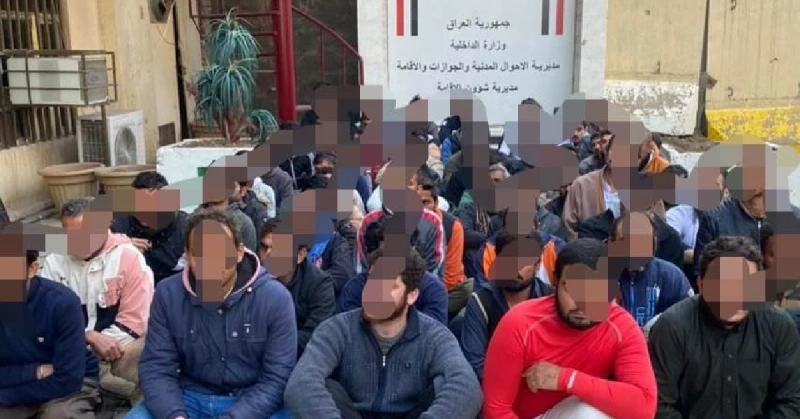DUBAI, United Arab Emirates - Sunni political blocs on Sunday announced the formation of a new coordination body known as the National Political Council, following a wide-ranging meeting in Baghdad held by Sovereignty Alliance leader Khamis al-Khanjar.
The move comes as Iraq begins the process of forming its next parliament after this month’s legislative elections.
The meeting brought together leaders of several major Sunni parties and alliances that secured seats in the sixth parliamentary cycle, including the Taqadum Party, the Azm Alliance, the Sovereignty Alliance, the Hasm al-Watani Alliance, and the Al-Jamahir Party.
The blocs said the gathering was held to address political challenges at both the national level and in Sunni-majority provinces.
In a joint statement, the leaders said the newly created council will serve as an umbrella body that “unifies positions, coordinates decision-making, and aligns political strategies among the participating blocs.”
The goal, they added, is to protect constitutional rights, strengthen representation in federal institutions, and enhance their collective ability to negotiate during government-formation talks.
The statement said the council will focus on major national files, including political stability, service delivery in Sunni provinces, and ensuring fair participation in the next government.
The leaders described the initiative as a step toward consolidating a unified Sunni political voice after years of fragmentation.
The blocs also emphasized the council’s commitment to working with “all national partners” and maintaining principles that uphold Iraq’s unity, stability, and social cohesion.
They noted that the body will keep its meetings ongoing throughout the new parliamentary term, allowing for coordinated positions ahead of key votes and negotiations.
At the end of the statement, the leaders called on their constituents to support the initiative, describing it as a “responsible national step” aimed at improving political performance, strengthening cooperation among Sunni parties, and advancing stability and reconstruction efforts in their regions.
The meeting and announcement come as political forces across Iraq begin organizing themselves ahead of negotiations to form the next government, a process expected to involve significant bargaining among major blocs, alliances, and community representatives.
Earlier on Sunday, Khanjar said all winning Sunni blocs were committed to quickly agreeing on key leadership posts to speed up forming the next government.
He said the blocs held a detailed meeting to outline a roadmap for the coming phase and bridge differences, noting ongoing coordination with all political sides, including the Kurdistan Region, to move the process forward.
Mohammed al-Halbousi’s Taqadum Party and its coalitions scored the highest number of seats among the Sunni forces in the recent elections, securing 36 seats.
With the final results announced, the upcoming Iraqi parliament must hold its first session within 15 days, during which the representatives elect a speaker, a post that traditionally goes to a Sunni Arab.
Within 30 days of the first session, the parliament must also elect a president for the country, which is a post traditionally reserved for Kurds but one that the Sunnis have also expressed interest in recently.



 Facebook
Facebook
 LinkedIn
LinkedIn
 Telegram
Telegram
 X
X


